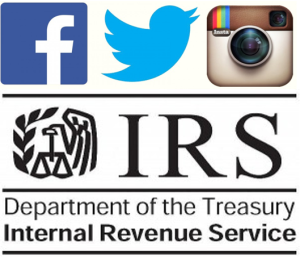Recovering From Financial Mistakes

History tells of investors leaping from tall buildings during the Great Depression.[i] It was Black Thursday, October 24, 1929,[ii] that newspaper columnist Will Rogers wrote: “When Wall Street took that tail spin, you had to stand in line to get a window to jump out of.”
Obviously, unforeseen financial (specifically, investment) mistakes were made, which led to the nation’s decade-long economic depression. Human history is filled with tragic tales that have led to some unfortunate decisions. But using tall buildings is certainly no solution to remedy a financial mistake. The adage is true: We all make mistakes, many of which are not necessarily our fault. However, you can easily trace back responsibility for mistakes such as buying a home that is too expensive, making ill-advised investments, not adequately saving for emergencies or retirement, or going into severe credit card debt.
So, how do you recover from financial mistakes?
Forgiveness is divine. Especially as it applies to your situation. Forgive yourself. You’re human. You made a mistake. Put it behind you. It’s in the past. Now plot your way forward.
Reexamine your financial condition. How bad is your situation? What are the potential long-term consequences? What steps can you take to mitigate the damage?
Here are some questions to help you analyze your current situation:[iii]
- What are your current assets?
- What do you owe?
- What’s your income and expenditures?
- What’s your credit score?
- Are there any long-term ramifications?Here is a useful system for setting goals using the acronym SMART. Your goals should be:
Set goals. The financial mistake is now behind you. Now is the time to develop a road map into your future. Where do you want to go? What do you want to accomplish? Plot your course carefully and studiously.
- Specific
- Measurable
- Attainable
- Realistic
- Timely
Make an action plan. The plan must have some balance and a visible outlet. Paying off debt may be a worthy goal, but sometimes it can be no fun. Only the very disciplined and ambitious should pursue single-focus goals. A mix of goals builds more longevity into your plan. Positive goals, like saving for retirement, provide measurable reinforcement. You can see your progress.
Time for reflection. Making your way forward to recover from past financial mistakes certainly feels right. But watch for those old road signs, the traps and temptations that led you astray in the first place. Monitor your behavior and emotions so that you can avoid falling into the same patterns that led to the bad decisions and the negative consequences.
If you would like to discuss your current financial plans and goals, we’re happy to talk. Contact us at 800.929.1001 or visit our website.
Investment advisory services are offered through CapSouth Partners, Inc., dba CapSouth Wealth Management, an independent registered Investment Advisory firm. Information provided by sources deemed to be reliable. CapSouth does not guarantee the accuracy or completeness of the information. This material has been prepared for planning purposes only and is not intended as specific tax or legal advice. Tax and legal laws are often complex and frequently change. Please consult your tax or legal advisor to discuss your specific situation before making any decisions that may have tax or legal consequences.
This article contains external links to third party content (content hosted on sites unaffiliated with CapSouth Partners). The policies and procedures governing these third party sites may differ from those effective on the CapSouth company website, as outlined in these Disclaimers. As such, CapSouth makes no representations whatsoever regarding any third party content/sites that may be accessible directly or indirectly from the CapSouth website. Linking to these third party sites in no way implies an endorsement or affiliation of any kind between CapSouth and any third party, including legal authorization to use any trademark, trade name, logo, or copyrighted materials belonging to either entity.
[i] https://www.history.com/topics/great-depression
[ii] https://www.washingtonpost.com/archive/opinions/1987/10/25/the-jumpers-of-29/17defff9-f725-43b7-831b-7924ac0a1363/?utm_term=.b27d573c3cf3
[iii] https://financialmentor.com/financial-advice/financial-crisis/6-steps-to-recover-from-financial-disaster/2365


